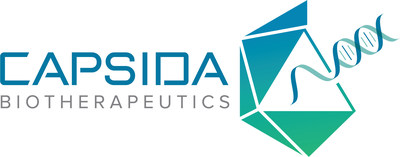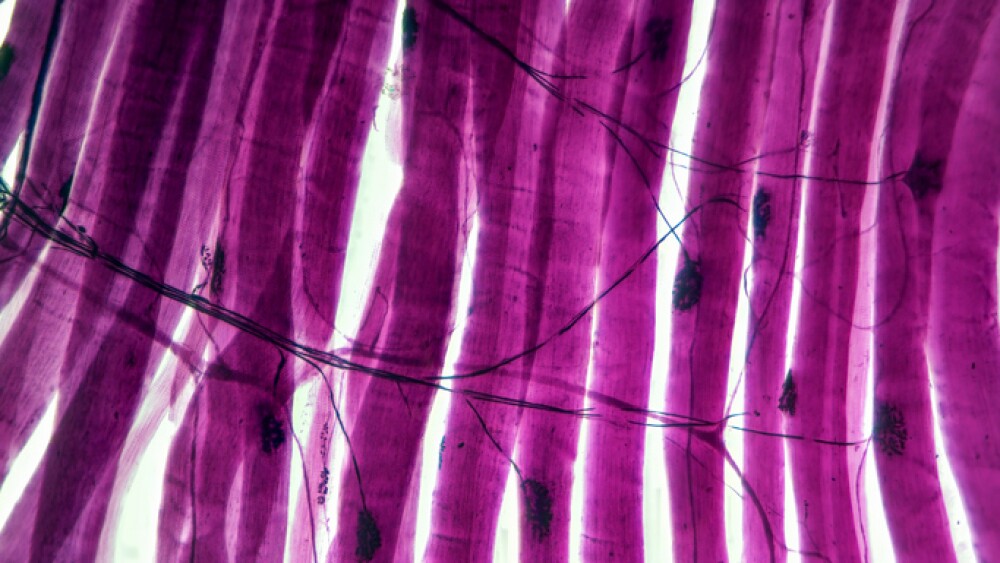Capsida Biotherapeutics (“Capsida”), the only fully integrated gene therapy platform company that through intravenous (IV) delivery of a single, engineered capsid can target single or multiple organs simultaneously while limiting exposure to non-targeted organs, today announced an oral presentation and a poster presentation delivered at the American Society of Gene & Cell Therapy (ASGCT) Annual Meeting.
|
Preclinical results demonstrate proof-of-concept of early generation AAV-engineered capsid in MPSII pilot program Data from capsid engineering platform show greater than 100-fold improvement over AAV9 across both infants and juveniles Top capsid variants show broad protein expression across the primate CNS THOUSAND OAKS, Calif., May 17, 2022 /PRNewswire/ -- Capsida Biotherapeutics ("Capsida"), the only fully integrated gene therapy platform company that through intravenous (IV) delivery of a single, engineered capsid can target single or multiple organs simultaneously while limiting exposure to non-targeted organs, today announced an oral presentation and a poster presentation delivered at the American Society of Gene & Cell Therapy (ASGCT) Annual Meeting. Capsida's approach unlocks the potential to treat both rare and common diseases across all ages. Capsida's presentations detail a preclinical disease model proof-of-concept for one of the Company's early generation AAV-engineered pilot programs along with results from its capsid engineering platform used to select adeno-associated virus 9 (AAV9)-based vectors with enrichment and transduction of cells throughout the central nervous system (CNS). The ASGCT Annual Meeting is being held virtually and in person May 16-19, 2022, in Washington, D.C. at the Walter E. Washington Convention Center. "The preclinical results demonstrate proof-of-concept that our early generation AAV-engineered capsids delivered IV can cross the blood-brain-barrier, which is perhaps one of the greatest challenges to treating CNS diseases. The data demonstrate improved distribution throughout the cortical, subcortical, and deep brain regions at low doses via IV administration compared to invasive AAV9 dosing methods," said Peter Anastasiou, CEO of Capsida. "We are also excited to share the advancements our capsid engineering platform has made to generate capsids that have 100-fold greater CNS expression than AAV9." Oral Presentation: CAP-001: Systemic AAV Gene Therapy With Next-Generation Capsids for MPS II Disease Capsida employed a high-throughput AAV engineering platform in non-human primates (NHPs) that rapidly selects capsids with improved transduction broadly across the brain after IV delivery. CAP-001, a novel engineered capsid packaging a human iduronate-2-sulfatase (IDS) transgene, was identified and selected for further characterization as a proof of concept to treat mucopolysaccharidosis type II (MPS II), or Hunter Syndrome, a lysosomal storage disorder caused by deficiency of IDS and accumulation of glycosaminoglycans (GAG) throughout the body. When administered IV, results showed that CAP-001 achieved greater than 25- and 2-fold higher biodistribution than AAV9 delivered IV or intrathecally via intracisternal magna (ICM), respectively. CAP-001 delivered IV not only achieved better biodistribution across the brain than AAV9 through either route, but also provided a significantly more uniform distribution across all brain areas with a >50-fold improvement in subcortical and deep-brain regions, an area where ICM delivery has proven to poorly distribute. In a subsequent dose-ranging study in NHPs, CAP-001 showcased a dose-dependent increase in biodistribution throughout the brain with no notable safety findings. In a dose-range finding study in the MPS II rodent disease model, CAP-001 increased IDS enzyme activity and reduced GAG levels throughout the body of adult mice, including throughout the brain, in a dose-dependent manner. At the higher end of the study, IDS enzyme activity was increased up to 83 percent of wildtype levels in the brain, while activity throughout the rest of the body was increased above wildtype levels. "This initial preclinical research informed the development of our next-generation gene therapy programs that require even higher CNS expression supported by our capsids, which when delivered IV, achieve 100-fold improved enrichment over AAV9 in NHPs, unlocking the potential to treat both monogenic and sporadic CNS disorders across all age ranges," said Dr. Flytzanis. Poster Presentation: Multiple Generations of Capsids Engineered in NHPs Yield Improved Performance in the Central Nervous System Local delivery to the CNS is an invasive approach. Capsida has employed its novel, NHP-driven capsid engineering platform to systematically improve AAV9 vectors, with the objective of generating capsids that broadly transduce the primate CNS following IV administration. Previous efforts in CNS AAV engineering had poor translatability from murine to primate models. Capsida has employed multiple sequential generations of capsid engineering in primates to develop recombinant AAVs capable of crossing the blood-brain-barrier following IV administration, in addition to achieving improved penetrance. In this study, Capsida's platform was employed to select AAV9-based vectors with brain enrichment and transduction of cells throughout the CNS. In both a broad and deep search of sequence space, variants spanning a range of improvements in CNS selectivity were discovered. As measured by vector genome residence, capsids were found to be greater than 100-fold improved over AAV9 across both juvenile and infant NHPs. Variants were also tested on induced pluripotent stem cell-derived neurons and demonstrated improved transduction in vitro. These candidates are being advanced with paired cargo into preclinical disease models for clinical development. "Results show that Capsida's platform can deliver robust improvements in DNA penetrance of viral vectors to the CNS via IV administration. High penetrance shows widespread transduction throughout both the infant and juvenile CNS, with corresponding protein expression," said Nick Goeden, Ph.D., co-founder and chief technology officer, Capsida. Abstracts can be accessed via the conference website at annualmeeting.asgct.org. About Capsida Biotherapeutics
SOURCE Capsida Biotherapeutics |





